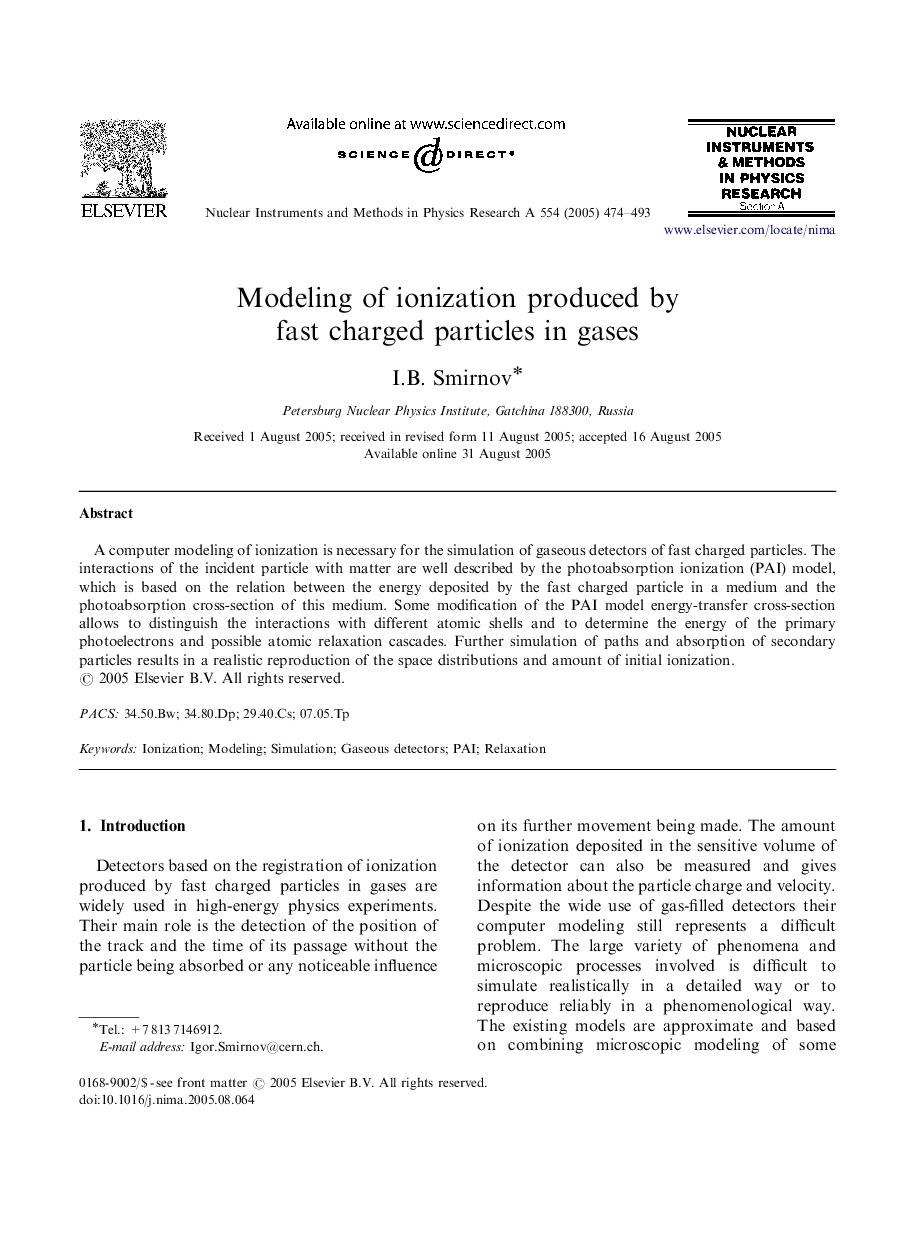| Article ID | Journal | Published Year | Pages | File Type |
|---|---|---|---|---|
| 9844939 | Nuclear Instruments and Methods in Physics Research Section A: Accelerators, Spectrometers, Detectors and Associated Equipment | 2005 | 20 Pages |
Abstract
A computer modeling of ionization is necessary for the simulation of gaseous detectors of fast charged particles. The interactions of the incident particle with matter are well described by the photoabsorption ionization (PAI) model, which is based on the relation between the energy deposited by the fast charged particle in a medium and the photoabsorption cross-section of this medium. Some modification of the PAI model energy-transfer cross-section allows to distinguish the interactions with different atomic shells and to determine the energy of the primary photoelectrons and possible atomic relaxation cascades. Further simulation of paths and absorption of secondary particles results in a realistic reproduction of the space distributions and amount of initial ionization.
Related Topics
Physical Sciences and Engineering
Physics and Astronomy
Instrumentation
Authors
I.B. Smirnov,
